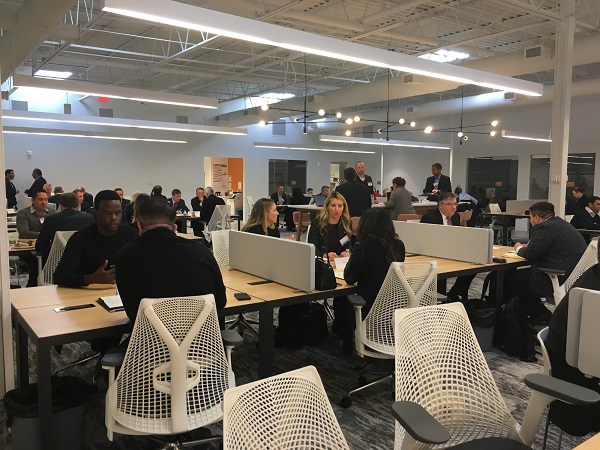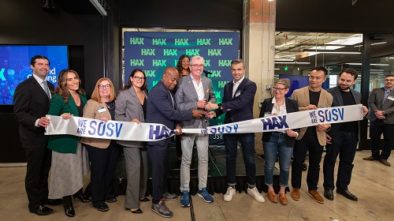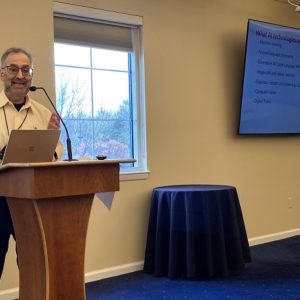Founders Find Investors at November NJEDA Founders & Funders Event, Part 1
Twice a year, the New Jersey Economic Development Authority (NJEDA) holds a Founders & Funders event, in which New Jersey startups are matched with potential investors. This year, more than two dozen entrepreneurs were connected with about 20 investors of all kinds. The event took place at Princeton Innovation Center BioLabs, a coworking venue that offers 31,000 square feet of shared wet and dry labs, as well as private offices.
Prior to the startup/investor meetings, Brian Sabina and Kathleen Coviello, both from the NJEDA, gave the startup founders and investors an overview of the incentives that were available to them from the state. Many of the founders NJTechWeekly.com spoke with were surprised at the wealth of resources available to them and to their future investors.
In this story, we will present three of the tech startups we spoke to. We asked them about their companies and how their meetings with investors had gone.
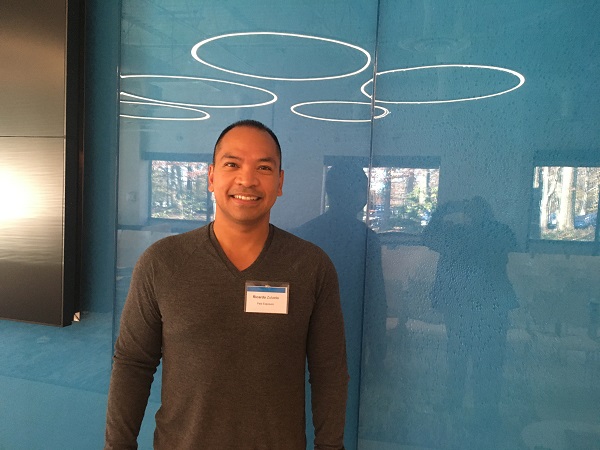
Ricardo Zulueta, Jr., founder of Paid Exposure (Toms River)
Social media influencers get paid to promote businesses that are seeking valuable exposure, Zulueta explained. Paid Exposure is a platform that allows influencers to get paid by businesses seeking that exposure.
“Right now, this takes days and weeks. With our system, you can actually be done within 24 hours because our unique platform lets you book influencers the way you book hotels and flights,” he said. “They are automatically scheduled for specific dates. We have a marketplace feature with ratings and reviews that help build trust. Without trust, transactions can’t happen as smoothly.”
We spoke to Zulueta after he’d gone through four meetings with investors. The first was a little rough, he said, because he was trying to adjust his pitch to each individual investor. “But it was actually a great experience. I was able to perfect my pitch along the way. You don’t just get one opportunity and then go home.”
Zulueta asked each of the investors he met what they were looking for and what was missing in his pitch. “Sometimes it was just the wrong time for that investor because of where I am in the investment cycle. I’m pre-seed. You can get paired with an investor that wants companies that are farther along, but I collected their information, and so I’ll be able to give them updates,” he said.
“With funding, you want to create a relationship beforehand, so this was a great opportunity to start the relationship. And then, when they see my monthly updates and see traction, it’ll be a lot easier for me to say, ‘Hey, do you remember me?’”
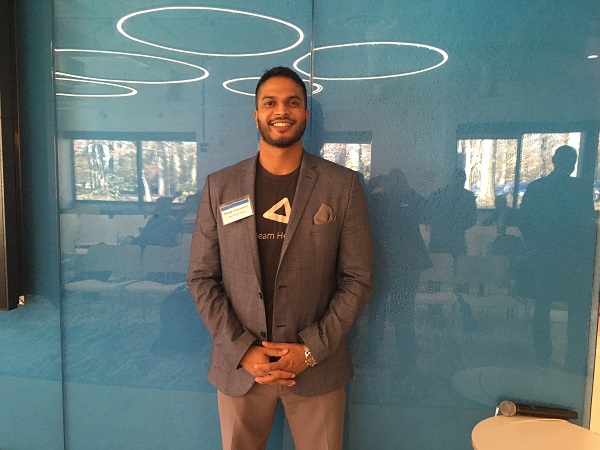
Ranga Jayawardena, cofounder and chief commercial officer, Beam Health Group (Holmdel)
“At Beam Health, we are building the largest telehealthcare store on the planet,” said Jayawardena. “Really, what we have is a two-sided marketplace where any physician, whether it’s a private practice or a hospital system, can list their services on the marketplace for free and then have virtual video visits with any patient we acquire for them” on a platform that’s compliant and secure.
Only about 15 percent of doctors are taking advantage of telemedicine opportunities, he noted. That’s because telemedicine companies want to pay them just $20-$30 per visit. Only urgent care doctors have been agreeing to these terms, he said.
“We partner with any practice, regardless of specialty, and allow them to have their brand and set the price for consultations. We charge them $10 for a consultation, with no startup fees or hidden fees. The doctors are insurance-based, and they use their contracted amounts; and we can do their insurance billing for them. We can also do cash-based transactions.
“We are insurance agnostic, so we can do any practice regardless of what insurances they work with, what their billing solution is and what their EHR [Electronic Health Record] solution is. We are really drastically lowering the barriers to entry for any doctor to do telemedicine.”
Jayawardena said that his meetings had gone well. He had 11 meetings scheduled, and was halfway through when we spoke to him. “It’s been really great so far. We are impressed with the caliber of investors the [NJEDA] has brought to the table here, and it’s great to have so much interest in New Jersey. For us, all the capital we’ve raised to date actually comes from New Jersey, which is interesting because my cofounder is from Silicon Valley and I’m from the New Jersey, New York, Philadelphia area. We got the capital though our backyard here in New Jersey.” Jayawardena noted that the company had already raised part of its seed round, and was seeing investors to fill out the round.
“One of the messages we’ve been able to align with the investors we’ve seen today is that, if you own distribution in healthcare, you own the space,” he said. “That’s why hospitals are purchasing smaller private practices, and that’s how telemedicine companies are competing with hospitals. Our plan for distribution is to partner with all of the above; and instead of competing with them, we give them the technology and marketing services, and we leverage their brands to get participation from patients and physicians.”
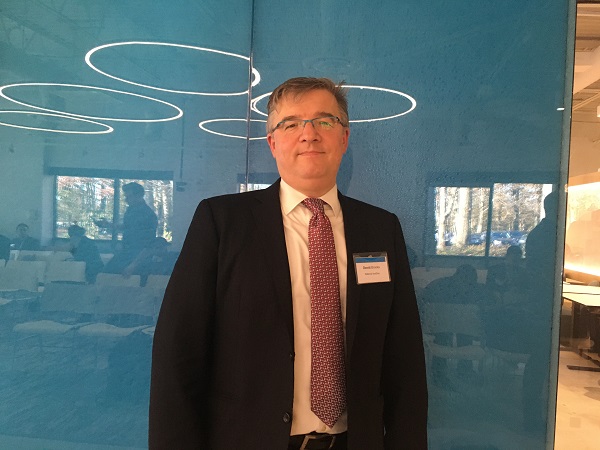
David Brooks, president of SRL Group Which Created ReferralVoodoo (Newark)
“The most powerful source of new business leads for any company is word of mouth,” Brooks said. “The problem is that there is no platform available that measures word of mouth, monetizes it and rewards people for exercising word-of-mouth referrals. We provide business owners with a platform where they can recruit, motivate and measure the referral activities of their customers.”
He explained further, “As those customers refer new customers, our software allows them to recognize that and to measure that, and then to pay out incentives. It can be a commission; it can be just a thank you letter. It allows them to know that the word of mouth turned into new business.”
We asked Brooks how the system works, and his answer was that, a lot of times, for medical or anything that’s a nonretail business, people want to talk to another person. “So, we use a call-tracking technology mated with a digital form and tracked SMS messages. We link the ‘ambassador,’ or referral maker, to the customer, so that the business owner can see where their referrals are coming from and see who the most effective ambassador for the business is.”
We spoke to Brooks after he had had four meetings. One was very promising. Two were with investors who “liked to write bigger checks, and we are just starting out.” As for the fourth one, “We didn’t meet their sweet spot.” Sometimes people misunderstood ReferralVoodoo’s focus customer, he said.
“While we are starting in healthcare, we have ambitions to grow much farther than that — into a lot of vertical nonretail markets.” Brooks thought the event was good for getting first introductions to investors. “A lot will depend on if the seeds are planted and begin to grow. I appreciated the opportunity to have a lot of different conversations.”

